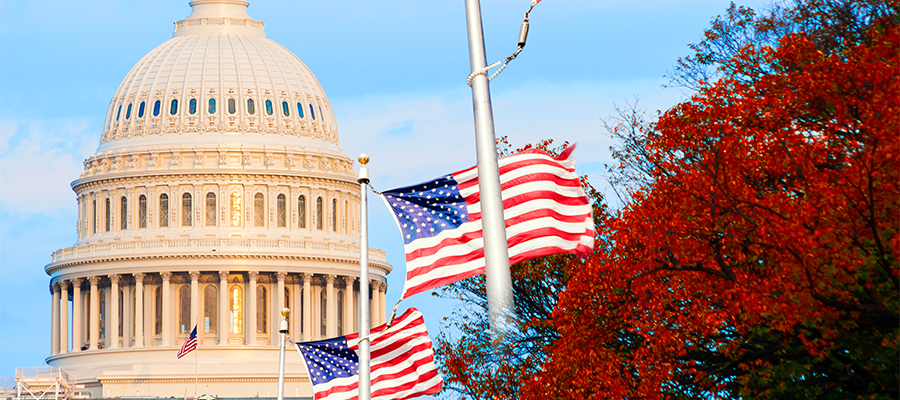
News






Latest
Some commercial insurer policies may hurt patients, contribute to clinician burnout and drive up the cost of care, AHA President and CEO Rick Pollack notes in an advertorial published today in the Wall Street Journal.
The Centers for Medicare & Medicaid Services’ proposed 3.3% market basket update for Medicare home health agencies in calendar year 2023 is “woefully inadequate,” especially when combined with an unprecedented 7.69% behavioral offset based on flawed assumptions, AHA told the agency today. In the letter, AHA strongly urged CMS to halt this proposed cut.
The Food and Drug Administration Friday said it does not recommend screening or testing blood donors for the monkeypox virus, given “the robustness” of existing safeguards for blood safety.
The Aug. 1 Modern Healthcare cover story “For health systems, how big is too big?” starts with a flawed premise “and then searches for validation,” writes AHA President and CEO Rick Pollack in a letter to the editor. “Unfortunately, while the article considers many factors, it falls short in offering a thorough analysis of what successful integration actually looks like.
Rep. Madeleine Dean, D-Pa., sponsor of the AHA-supported Violence for Healthcare Employees (SAVE) Act, today participated in a roundtable discussion with Tower Health staff and others at Pottstown (Pa.) Hospital to learn more about the rise in violence and abuse against health care workers throughout the nation. The bipartisan legislation, also supported by the Hospital and Healthsystem Association of Pennsylvania (HAP), would give health care workers the same legal protections against assault and intimidation that flight crews and airport workers have under federal law, and authorize $25 million in grants over 10 years to reduce violence and intimidation in hospitals.
Hospital patients are sicker and more medically complex than they were before the COVID-19 pandemic, driving up hospital costs for labor, drugs and supplies, according to a new AHA report.
by Wright L. Lassiter III, Chair, American Hospital Association
The work that hospitals and health systems are doing to improve the overall health of their communities is just as important as the work to treat injuries and diseases.
The House today voted 220-207 to pass the Inflation Reduction Act (H.R. 5376), sending it to President Biden for his signature.
Former co-chairs of the Cyberspace Solarium Commission request briefing on HHS efforts to protect health care sector through public-private collaboration.
The ransomware uses remote desktop protocol and firewall vulnerabilities and phishing campaigns to access victim networks.
The Food and Drug Administration yesterday advised people who get a negative result from an at-home COVID-19 antigen test to test themselves again after 48 hours to reduce the risk of missing an infection and spreading the virus to others.
The Department of Health and Human Services yesterday released new guidance on ordering, reporting, payment and cost-sharing for the COVID-19 monoclonal antibody therapy bebtelovimab, a treatment option for outpatients at high risk for hospitalization that begins transitioning from HHS to commercial distribution next week.
by Rick Pollack, President and CEO, AHA
At this summer’s AHA Leadership Summit, senior health care executives, clinicians and experts shared state-of-the-art thinking on conquering the challenges facing our field and bold ideas for transforming health care in our country.
The FDA announced a Class 1 recall of devices used to access blood vessels through a patient’s bone because the devices may malfunction, and recommended customers quarantine the devices.
HHS purchased $26 million worth of intravenous TPOXX (tecovirimat) to treat monkeypox, which the manufacturer expects to deliver next year.
The CDC released updated guidance to help people protect themselves and others if they are exposed to, sick or test positive for COVID-19.
by Dawn French
Situated in the heart of Westchester County and just outside of New York City, White Plains Hospital was among the first hospitals in New York to face the COVID-19 pandemic during the early days of 2020, back when there were many unknowns.
The Food and Drug Administration yesterday issued an emergency use authorization allowing health care providers to administer the JYNNEOS vaccine intradermally to adults and subcutaneously to children at high risk for monkeypox infection, without an individual prescription for each vaccine recipient.
As the health care workforce faces unprecedented challenges and opportunities to redefine care delivery and encourage the next generation of leaders, Tom Yackel, M.D., president of the faculty practice plan at VCU Health in Virginia and past chair of AHA’s Committee on Clinical Leadership, shares his thoughts on the way forward.
The Department of Health and Human Services today released the Environmental Justice Index, a tool to help policymakers and communities identify health risks from pollution and other environmental hazards.

